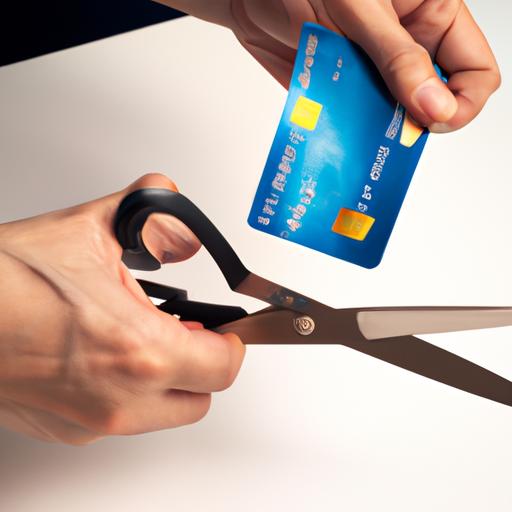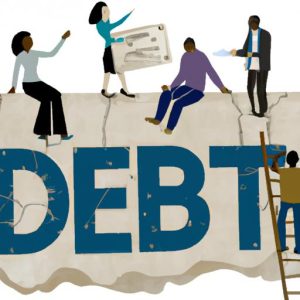Introduction
A. Definition of Credit Card Debt
Credit card debt is the financial burden that arises when individuals accumulate unpaid balances on their credit cards. This debt accrues due to overspending, high-interest rates, or unforeseen circumstances, leading to a cycle of minimum payments and growing balances.
B. Importance of Getting Rid of Credit Card Debt
The weight of credit card debt can have a significant impact on one’s financial well-being, causing stress, limiting future financial opportunities, and hindering long-term financial goals. Taking proactive steps to eliminate credit card debt is crucial in achieving financial freedom and stability. Let’s delve into strategies and tips to help you effectively manage and ultimately eliminate your credit card debt.
Understanding Credit Card Debt
A. Causes of Credit Card Debt
Credit card debt can stem from various factors, including impulsive spending habits, lack of financial literacy, unexpected emergencies, or simply living beyond one’s means. It is crucial to recognize and address the root causes of credit card debt to effectively tackle the issue and prevent its recurrence.
B. Consequences of Carrying Credit Card Debt
Carrying credit card debt can have a ripple effect on one’s financial health and overall well-being. From high-interest charges and credit score damage to stress and anxiety, the consequences of carrying credit card debt extend far beyond just the financial realm. Understanding these repercussions is essential in motivating individuals to take action and eliminate their credit card debt.
Strategies for Getting Rid of Credit Card Debt
A. Creating a Budget
One of the fundamental steps in eliminating credit card debt is creating a detailed budget. By tracking your income and expenses, you can identify areas where you can cut back on spending and allocate more funds towards paying off your debts. A budget provides a clear roadmap for managing your finances and prioritizing debt repayment.
B. Prioritizing Debts
Prioritizing debts involves identifying high-interest credit cards or loans and focusing on paying them off first. By targeting debts with the highest interest rates, you can reduce the overall amount of interest paid over time. This strategy helps you save money and accelerates your journey towards becoming debt-free.
Tips for Managing Credit Card Debt
A. Avoiding Unnecessary Expenses
To effectively manage credit card debt, it is essential to prioritize needs over wants and cut down on unnecessary expenses. By tracking your spending habits and identifying areas where you can reduce costs, you can free up more funds to allocate towards paying off your credit card balances.
B. Making Timely Payments
Late payments not only result in costly fees and increased interest rates but also negatively impact your credit score. Setting up automatic payments or reminders can help ensure that you make timely payments each month, reducing the risk of falling further into debt.
C. Increasing Income Sources
Finding ways to boost your income, such as taking on a side hustle or freelance work, can provide additional funds to put towards paying off your credit card debt faster. Consider exploring opportunities to increase your earning potential and accelerate your debt repayment journey.
D. Using Balance Transfer Offers Wisely
Balance transfer offers can be a useful tool for consolidating high-interest credit card debt onto a card with a lower interest rate. However, it is crucial to read the terms and conditions carefully, understand any associated fees, and create a repayment plan to take full advantage of this option without falling into further debt.
Benefits of Being Debt-Free
A. Improved Financial Stability
Being debt-free provides a sense of financial security and stability, allowing you to have greater control over your money. Without the burden of debt payments, you can allocate funds towards savings, emergency funds, and investments, creating a solid financial foundation for the future.
B. Reduced Stress and Anxiety
Debt can be a significant source of stress and anxiety for many individuals. By eliminating debt, you can experience a sense of relief and peace of mind, knowing that you are not weighed down by financial obligations. This can lead to improved mental well-being and overall quality of life.
C. Increased Saving and Investing Opportunities
When you are debt-free, you have the flexibility to save and invest your money in ways that can help you reach your financial goals faster. Whether it’s saving for a down payment on a house, investing in retirement accounts, or building wealth for the future, being debt-free opens up a world of possibilities for your financial future.
Conclusion
In conclusion, getting rid of credit card debt is a vital step towards financial freedom and stability. By understanding the causes and consequences of credit card debt, implementing effective strategies, and adopting smart financial habits, you can work towards eliminating your debt and securing a brighter financial future.
Remember, managing credit card debt requires discipline, determination, and a willingness to make necessary changes to your spending habits. By prioritizing debt repayment, seeking professional guidance when needed, and staying committed to your financial goals, you can take control of your finances and pave the way for a debt-free future. Start taking steps today to free yourself from the burden of credit card debt and enjoy the peace of mind that comes with financial independence.


